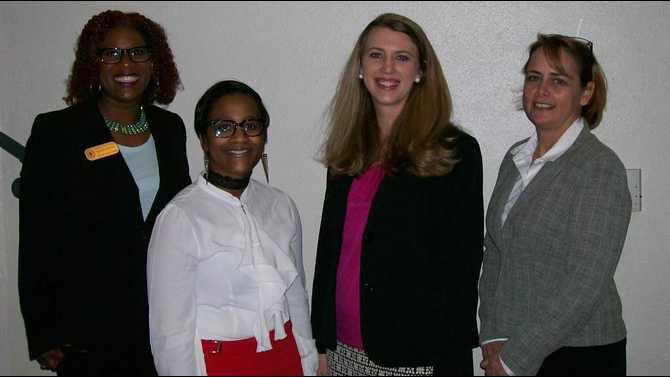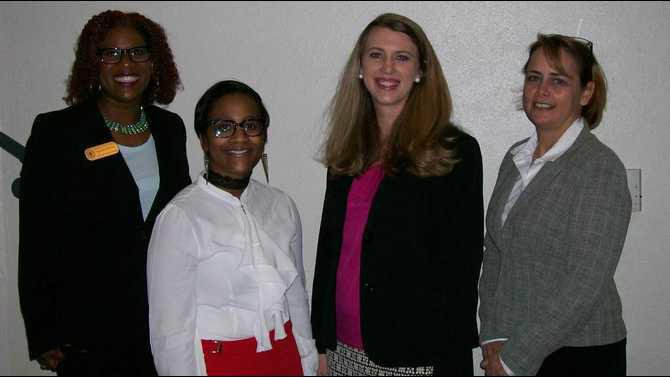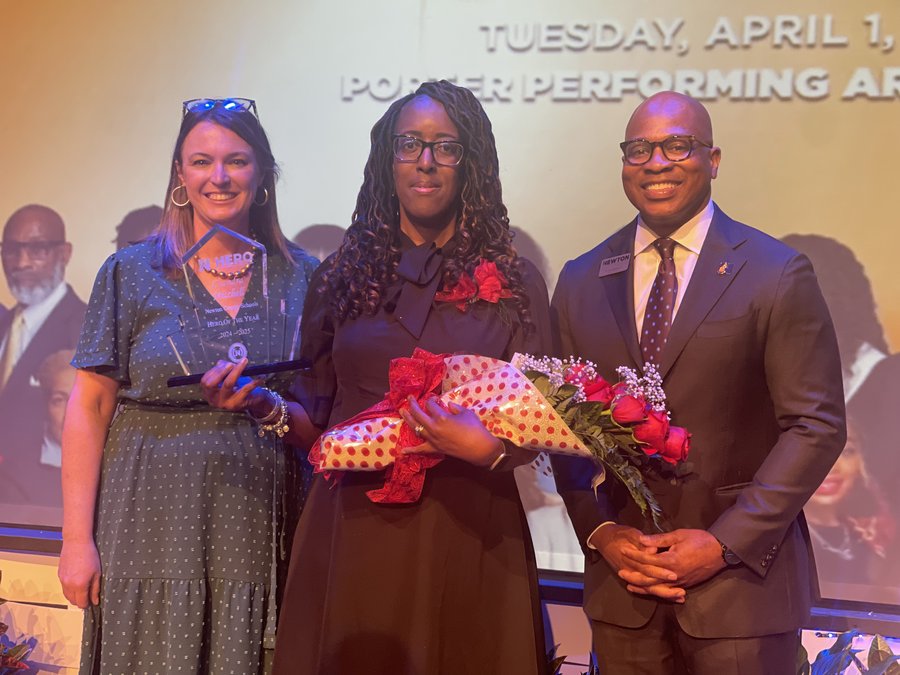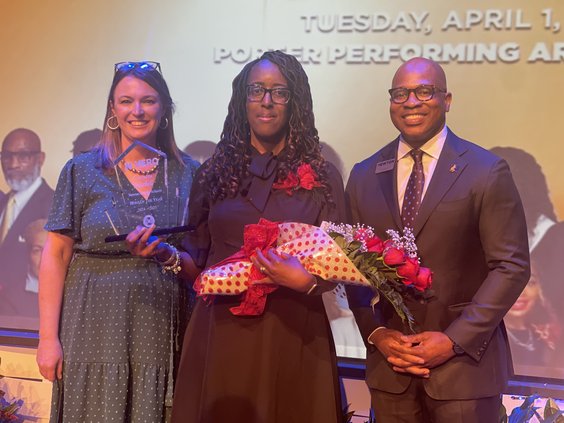The Newton County School System (NCSS) sponsored the first of two poverty awareness sessions Feb. 14. Anyone interested in learning more about poverty in the community, its impacts on fellow citizens and children, as well as a new community-wide initiative aimed at helping people navigate through the situation of poverty are invited to the second session at 10 -11:30 a.m., March 3 in Porter Performing Arts Center, 144 Ram Drive.
At the session, Samantha Fuhrey, NCSS superintendent, noted that those who are not in poverty generally do not understand the challenges and reasons behind the behavior of those who are in poverty. She provided two examples.
“When a mom or dad does not show up for a parent-teacher conference, it’s easy to assume they just don’t care,” she said. “But if we asked why, we might find out that mom has only 1/8th of a tank of gas left in her car. She has to make the choice of going to work or going to the parent-teacher conference.”
Fuhrey also told the story of a Covington family whose children were missing days in school and therefore days of learning because the water in their home had been shut off. The children could not bathe or wash their clothes regularly. Rather than suffer the humiliation of going to school unwashed, the children stayed home.
“Many of us believe that we know all there is to know about poverty,” Fuhrey said. “But we need to become poverty informed.” A poverty informed community would better understand or ask why people impacted by poverty act as they do.
Fuhrey expressed her hope that Newton County also becomes an “Opportunity Community.” That is, a community wherein every individual and organization committed to addressing poverty is connected and where there are “navigators” willing to help their poverty impacted neighbors navigate through the situation of poverty. In such a community, she noted, it would only take one phone call to arrange for someone to pick up a parent without much gas and give her a ride to a parent-teacher conference.
“I know, having been a member of the community for a very long time, that if we had a strong network of connected individuals and organizations when we send out an alert for help, this community would respond,” Fuhrey said. “That’s a strength of our community. Today is the beginning step for our community to study how to become an opportunity community where there are navigators who recognize the work, who are poverty informed, and who work with neighbors, those people who live in our community who need our support and guidance.”
Ronnie Johnston, Covington mayor, said he was one of those who thought he knew everything and who bought into negative stereotypes about those living in poverty until he started visiting people and homes.
“I realized poverty is a big issue,” Johnston said. “An issue I didn’t really understand. I had to spend some time learning about it.”
Johnston stated his two big goals for Covington and this area.
“We want to completely eradicate poverty. Period. We want zero unemployment. I’m dead serious about it,” he said.
Here are some facts about poverty in Newton County according to the poverty awareness session’s presenters: Jennifer Williams, NCSS instructional technology coordinator; Angela Cameron, assistant principal Heard-Mixon Elementary School; Karen Dozier, NCSS elementary coordinator of curriculum, instruction and professional learning; and Dashe’ Frieson, Newton County Health Department.
The U.S Department of Health and Human Services considers people in poverty if a family of four earns less than $24,600, a family of three earns less than $20,420, a family of two less than $16,240, or an individual less than $12,060.
In Newton County, 14.9 percent of the people and 29 percent of the children live in poverty. This is above the national average. Poverty affects all people; in Newton County 9,000 African American, 8,000 Caucasian, and 2,000 Hispanic people are in the situation of poverty.
Within the NCSS, 70 percent of the students are economically disadvantaged. It is well known that poverty impacts students’ ability to learn and succeed. They miss more school. They are often hungry. Hunger can cause an inability to concentrate, poor energy, lack of social skills, poor academic performance; more headaches, stomachaches and colds; and a higher risk of mental illnesses. Teachers have said that one of the saddest things is seeing students off on Friday, knowing those children may not eat until they return to school on Monday.
The community leaders who are behind the new initiative to address poverty in Newton County have straightforward goals. They want to create a poverty informed community that better understands people impacted by poverty. They want to create a “Newton County Opportunity Community” wherein there is a network connecting all Newton county individuals and organizations committed to addressing poverty and navigators willing to help their neighbors navigate the situation of poverty.
Fuhrey ended the session by asking the question, “Are you ALL in?” It was a question directed at the people attending the session, but also at everyone interested in addressing poverty in the community. Are we as a community committed, like Fuhrey, Johnston, and others to helping fellow citizens navigate through the situation of poverty?









